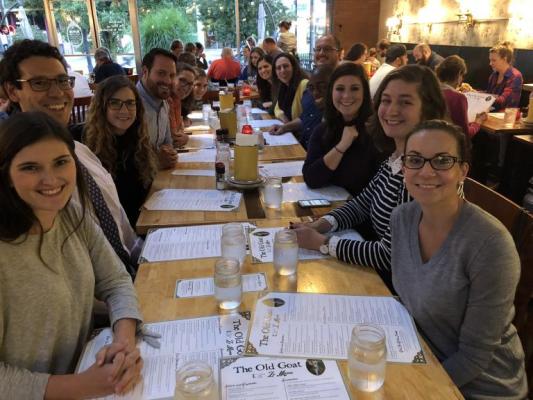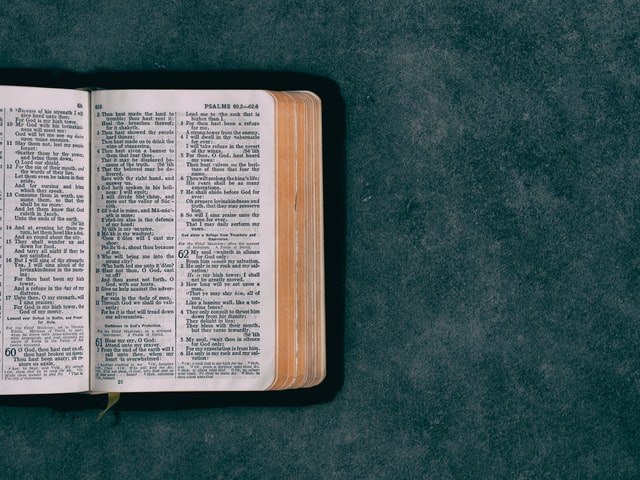How To Get Into A History PhD Program

It is the most nerve-wracking time of the year. PhD hopefuls have uploaded finely-honed applications to their top choice doctoral programs and clicked submit. Now the waiting game begins. By mid-January programs with the earliest deadlines will begin notifying first-round candidates and extending offers for preview weekends, by March most offers will have been extended, and by April it will be all over (at least for programs with Fall entrance dates).
Unfortunately, for most applicants, the news won’t be good.
According to the 2017 Council of Graduate Schools report on Graduate Enrollment and Degrees, less than 23% of all doctoral applicants receive offers (p. 4). In the case of History programs, that number is on the high end. For example, our program (usually) only accepts 2-3 of our applicants. This means our acceptance rate is less than 10% and sometimes as low as 6%.
“Never tell me the odds,” right? Just because Han Solo successfully navigated the asteroid field doesn’t mean the rest of us will (yes, I know this goes against Geek wisdom, but it is sadly still true). The cold hard truth is that most people who apply to doctoral programs will be rejected. Data makes this crystal clear. Almost 700,000 hopefuls applied to U.S. doctoral programs in 2017; more than 500,000 received rejections.
Want to walk away? Many hopefuls should. Getting into graduate school is extremely hard. Getting through graduate school is even more difficult. Getting a job in academia after graduate school is depressingly difficult. Getting a job that allows you to flourish as both a scholar and teacher, financially supporting research time and conference travel and allowing you to teach mostly within in your field, is simply a crapshoot. If you can think of anything else you would enjoy doing with your life, walk away (and you can stop reading too if you want).
But for those of you who really feel called to academia, the rest of this article is for you.
So how can you increase your chances of getting accepted? I don’t have a golden ticket. But I do have the experience of serving on a graduate selection committee since 2011 and as a graduate program director since 2016. Here is my advice:
Figure out why you want a PhD and what you want to do with it. Does it just sound like a challenge? Do people expect you to get a PhD? Are you not sure what else to do? If your answer to any of those questions is yes, my advice is to walk away (see above). You ONLY want to get into a PhD program if you REALLY feel called to it AND if you need it for your career goals. Doctoral programs ONLY want you as a student if they REALLY think you have the staying power to make it through the program. If you are not clear about your purpose and do not have a reasonable understanding of what a PhD entails, most doctoral committees will dismiss your application. We don’t want people who aren’t serious about completing the degree. We don’t want people who are vague about why they are pursuing a PhD or are uncertain about why they need it. So figure out your goals and articulate them clearly and realistically in your purpose statement. Check out the reflection questions on the American Historical Association website to help you think through this.
Do your homework! Learn about the doctoral programs before you apply. The American Historical Association has a great list of questions to guide your research, like what makes the program distinctive? does the program have faculty in your area of interest? There are a lot of excellent doctoral programs out there, so WHY are you applying to this one? Why do you need the faculty and focus of THIS program to meet your career goals? Again, figure out the answers to these questions and articulate them clearly in your purpose statement. Make sure that the faculty you list as possible mentors are actually taking doctoral students (this is so important!). If possible, reach out to those faculty in advance.
Apply to programs that are a good fit for your research. There is no point in applying to a program in which there are no faculty to support your research interests. It doesn’t matter how brilliant your project is. It doesn’t matter how brilliant a student you are. It doesn’t matter if you have already published an article and/or earned a Fulbright. If there are not faculty who are interested in your project and/or able to support your intellectual interests, you will not get an offer. Indeed, in my experience serving on graduate committees, there are two main reasons that applicants get dismissed early on: 1) they simply don’t meet the program requirements 2) they aren’t a good fit for the research focus of the program or faculty mentors (or at least have done a poor job in articulating their fit). Let me give you an example: Personally, I am interested in women’s history and religious history in late medieval and early modern Europe (mostly England). I have built my career in this area. I articulate my research interests on my Baylor bio page. Why would a student not interested in women’s history want to work with me? Why would I want to work with them? Program fit and advisor fit is critical. Pay attention. Apply to programs and people you fit well with.
Explain questionable areas in your c.v. and/or transcript in your purpose statement. Did you barely earn a 2.9 GPA your first year in college, but then had a conversion experience and made a 4.0 every semester thereafter? If so, just explain this briefly. Are you switching from one field to another (such as from a Business undergrad degree to History PhD)? If so, make sure you have met the basic requirements (like having taken 18 hours of undergraduate history credit) and briefly explain your conversion. In short, don’t leave the admissions committee guessing. Too many question marks surrounding an applicant will mostly translate into a rejection. It is your job to make it clear WHY and HOW you fit all the program application requirements. So make sure you do it.
Don’t give up. If you really want to do this, then don’t let rejection stop you. If you apply to 10 places this year and receive 10 rejections, then treat it as a learning experience. Do something in the meanwhile that will strengthen your c.v. (go teach at a community college, for example), and try again. Reach out to potential mentors earlier. Go visit program campuses and make an appointment with the graduate program director. Most importantly, try again. Persistence really does pay off.
Good luck!
Stay tuned for my upcoming Christmas post, “A Christmas Midwife’s Tale.”





